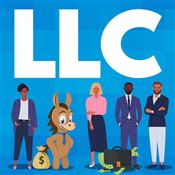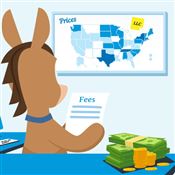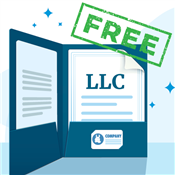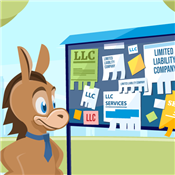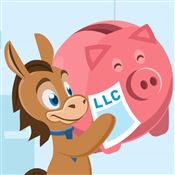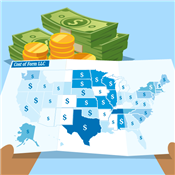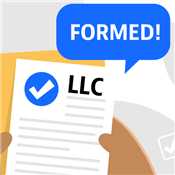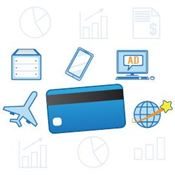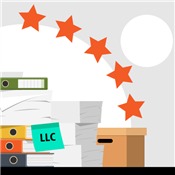How Much Does a CPA Cost
A CPA typically charges from $150 to more than $400 per hour. But you could save money with these other payment types.
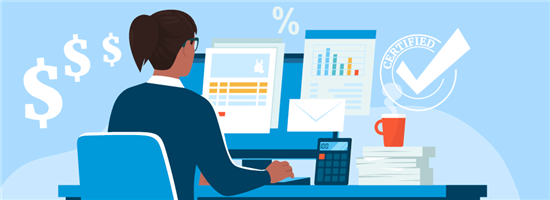 |
An accountant's fee varies based on the payment type:
- Hourly Rate: $50 to $743.13+
- Fixed Monthly Fee: $100 to $2,500+
- Per Form Fee: $50 to $1,000+
Accountant fees can be hefty, so don't blindly accept the first quote.
Use this guide to understand how CPAs charge, what influences their rates, and alternative services that might fit your needs.
Payment Types and Average Cost
Some CPAs charge hourly or by form, while others ask for a fixed fee. The average cost for each payment type varies widely, but you can estimate it through the following details.
Instead, fees vary based on several factors. Where you're doing business, the accountant's expertise and the difficulty of the services required all come into play.
Hourly Rate
Range: $50 to $743.13+[1]
Hourly billing is the most common payment type for CPAs. It accommodates a wide range of services and client needs, from simple tax returns to complex financial planning. It also allows CPAs to charge more for time-consuming tasks.
According to the 2020-2021 survey by the National Society of Accountants, the hourly rate can be as low as $50 for elderly care services.[1] This involves financial management for elderly clients or advising on estate planning.
It goes as high as $743.13 per hour for federal or state tax returns and other tax services. However, that's rare. The typical hourly rate for tax returns and payroll services is around $103 to $250.[1]
Fixed Monthly Fee
Range: $100 to $2,500+[1]
A CPA may charge a fixed monthly fee regardless of how many hours were worked for the client. Also called a flat or retainer fee, this option could be more beneficial to clients because it provides more predictability.
You can get tax services for as low as $100 per month. However, accountants may charge $2,500 or more to audit financial statements.[1] The higher your gross income is, the higher the CPA fixed fee will be.
Keep in mind that you might still pay the monthly fee even if the accountant didn't accomplish any task. So, this payment type may not be the best option if you only need seasonal services.
Look for an accountant who charges a flat monthly fee if you need ongoing services. This includes common services like tax preparation and bookkeeping.
Per Form Fee
Range: $50 to $1,000+[1]
Some accountants charge per tax form, like Form 709 for gift tax or Form 1120-S for S-corporations.
A simple Form 940 for Federal unemployment tax could cost as low as $50. However, more complex forms, like Form 706 for estates, could cost at least $1,000.[1]
Consider choosing a per-form payment type over an hourly rate if you only have simple tax returns done annually. This prevents disputes over the number of hours worked.
Up to 92% of accountants charge an additional fee to prepare W-2s.[1] A W-2 (Wage and Tax Statement) is a form employers must file with the IRS and send to their employees for each calendar year.
Some accountants already include a single W-2 in their tax preparation fees. However, those with multiple employees or complex payroll situations will likely incur additional charges.
Factors That Affect CPA Fees
Some accountants charge higher rates than others. But based on the following factors affecting CPA fees, that isn't necessarily bad.
- CPA experience and expertise
CPAs with more experience are more likely to charge higher fees. Specialization also matters.For example, forensic accountants may charge double the usual rate ($300 to $500 per hour) to assist with litigation-related finances.
- Geographic location
Differences in the cost of living, market dynamics, and local demand also affect CPA fees.Cities like New York, Los Angeles, San Francisco, and Boston are most likely to have the highest CPA fees because they are major business and financial hubs.
- Complexity of tasks
Tasks like auditing financial statements require meticulous attention to detail due to strict standards. Additionally, complex tasks may need advanced software for data analysis. - Business structure
CPA firms often charge higher fees than individual freelancers. This is due to the higher overhead costs of running a firm, such as office space, staff salaries, and technology systems.In a partnership, fees can vary significantly depending on the partnership's size, prestige, and specific expertise.
- Frequency of engagement
An initial engagement might be more expensive since the CPA is still learning about your financial situation. With consistent work, the CPA becomes familiar with your records, reducing time spent on basic tasks.CPAs might offer discounted hourly rates or value-based packages for regular clients.
CPAs may charge an additional fee for late submissions (e.g., after tax season) or expedited services. You might also have to pay more if the CPA finds that you have missing or incomplete documents.
Benefits of Working with a CPA
Hiring an accountant is not cheap, nor should it be. Here's what a CPA brings to the table:
- Years of education and training
CPAs undergo rigorous education and exams. Many hold specialized certifications too. You're paying for the expertise they gained through years of extensive training. - Peace of mind
Tax season and complex financial tasks can cause anxiety. Knowing your finances are handled correctly offers a sense of security that's hard to put a price on. - Cost-saving strategies
Time is money. An accountant frees you to focus on growing your business. Plus, they can help save money by applying tax reduction strategies. - Professional liability insurance
Also called Errors & Omissions insurance, it typically covers financial damages to clients like missed deductions, penalties caused by an error, and having to redo filings.
CPAs can also help with financial planning, like helping you see potential financial gains and losses.
The American Institute of Certified Public Accountants directory lists members, although not all CPAs choose to be included. Alternatively, most states have a Board of Accountancy website that shows licensing and disciplinary information for CPAs practicing in the state.
Alternatives to CPA Services
The following alternatives don't compare to the high-quality services that a CPA can bring. However, they might just do if your primary goal is to find cheaper services:
- Accounting Software
You can subscribe to accounting software like QuickBooks, FreshBooks, and Xero. It helps you handle bookkeeping, invoicing, and some basic tax preparation. - DIY Tax Filing
Ideal for freelancers and small business owners, online tax software helps complete and file tax returns. Many use TurboTax, TaxSlayer, and TaxAct as they provide easy-to-follow instructions. - Tax Preparer
A tax preparer is not a certified public accountant, but their services will do if you only need basic tax preparation. They may also offer cheaper services than a CPA. - Bookkeeper
A bookkeeper helps with financial recordkeeping. They make sure that the nuts and bolts of your finance records are accurate, categorizing transactions into accounts. They typically charge much less per hour than CPAs.
You could underestimate your taxes and end up underpaying. Or, you could incorrectly separate expenses, which is a major red flag for the IRS. These errors could cost you more time and penalty charges.
Bottom Line
CPAs offer valuable expertise and experience, but you shouldn't pay more than you have to.
Before you commit to a CPA, consider how different fee structures might suit your needs better. Always weigh their rates against the potential costs and benefits they bring to your business.
References
- ^ National Society of Accountants. 2020-2021 Income and Fees of Accountants and Tax Preparers in Public Practice Survey Report, Retrieved 05/15/2024
- ^ Upwork. How much does it cost to hire an accountant?, Retrieved 05/15/2024
Write to Nicole King at feedback@creditdonkey.com. Follow us on Twitter and Facebook for our latest posts.
Note: This website is made possible through financial relationships with some of the products and services mentioned on this site. We may receive compensation if you shop through links in our content. You do not have to use our links, but you help support CreditDonkey if you do.
|
|
| ||||||
|
|
|
